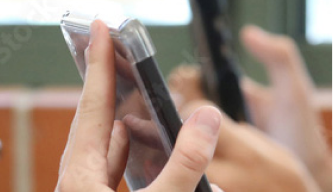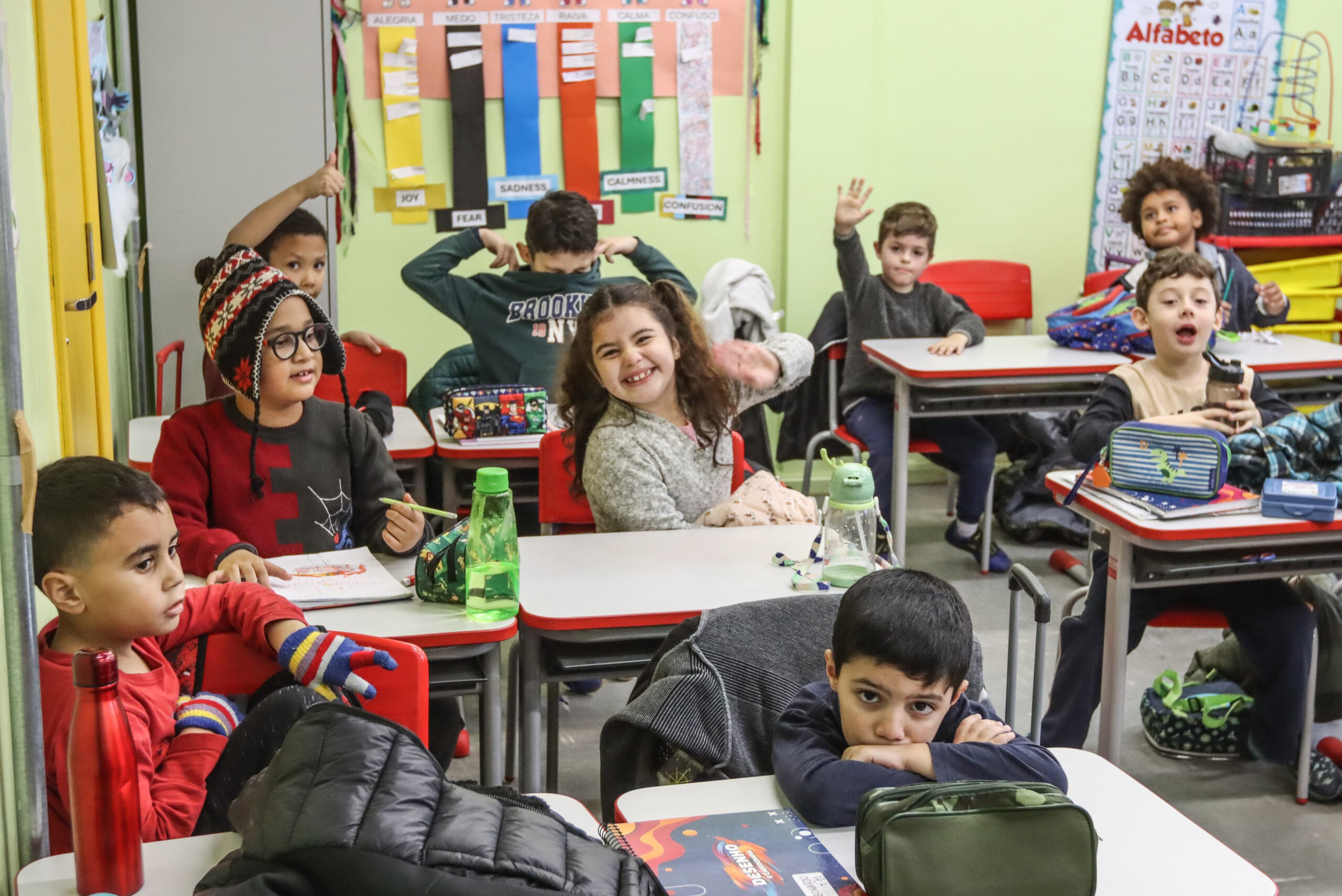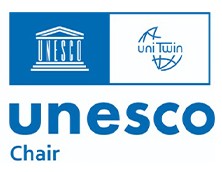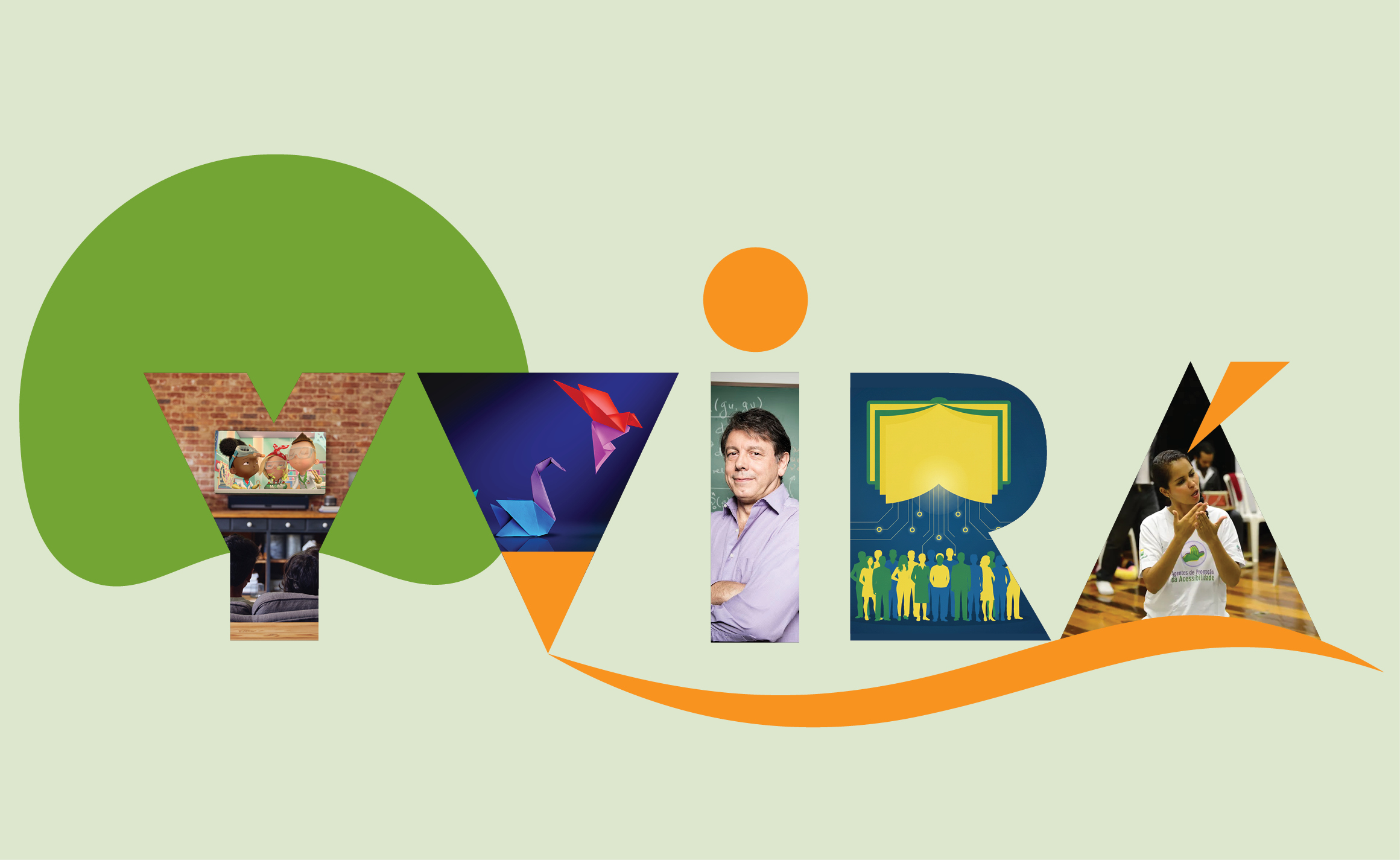

wHAT ABOUT?
Questions that concern teachers
JULY/AUGUST 2025 | nº2 In this section, experts invited by YVIRÁ answer questions sent by teachers who are part of the National Network of Science for Education (Rede CpE) as “Friends of the Network”.
This time, the topic is the preparation of teachers in the application of scientific research to the reality of school pedagogical practice. The answers are provided by linguist Raquel Freitag, professor of the Department of Vernacular Letters at the Federal University of Sergipe (UFS), researcher at the Group of Studies in Language, Interaction and Society (GELINS) and member of the Editorial Board of YVIRÁ.
From research to school practire
How can we prepare teachers to be critical consumers of educational research, ensuring that they know how to adapt scientific evidence to the complexity of school practice?
IMAGE: ADOBESTOCK
Submitted by Virgínia Baptista Chaves Duarte de Lima, educator/founder of Glia Neurociência Educacional, neuroscientist and elementary school teacher, Rio de Janeiro/RJ
Raquel Freitag
Professor at the Department of Vernacular Letters at the Federal University of Sergipe (UFSE)
Researcher at the Language, Interaction and Society Study Group (GELINS)
Initial training in undergraduate courses must include subjects on scientific methodology and academic training for scientific literacy.
Raquel Freitag
Professor at the Department of Vernacular Letters at the Federal University of Sergipe (UFSE)
Researcher at the Language, Interaction and Society Study Group (GELINS)
To achieve this goal, we need actions in the initial and continuous training of teachers and encouragement of scientific research in schools.
Initial training in undergraduate courses needs to include subjects on scientific methodology and academic training for scientific literacy. Scientific methodology is more than knowing the rules of the Brazilian Association of Technical Standards (ABNT), as is usually discussed: it is knowing the scientific method and learning to evaluate the reliability, validity and applicability of scientific research, identifying biases and conflicts of interest, types of research and methodological limits of the results.
Along with knowledge of scientific methodology, initial training needs to focus on science readers, hence the importance of academic literacy subjects, to equip future teachers to consume scientific research results in their different sharing formats (scientific articles, conferences and lectures, reports, executive summaries, etc.).
Scientific literacy trains teachers who are consumers of science and who can recognize that knowledge advances rapidly, demanding ongoing training that is constantly updated. Gone are the days when teachers were content transmitters, or responsible for transmitting knowledge. There has never been such an abundance of content, in different media and with different approaches, available to society. Together with this process are advances in the field of scientific research, in all areas of knowledge. But we are also immersed in questionable content or content produced by artificial intelligence. How can we know what is fact or fake? Once again, scientific literacy is crucial for the critical consumption of scientific research.
And there is no point in having all this knowledge and critical thinking if there are no changes in the school environment, with research in schools (see here, for example, the actions of the Cienart project). Whether it is bringing scientific evidence with pedagogic translation of knowledge, or with action research projects building new knowledge based on reality, bringing scientific research to schools is key to forming citizens capable of dealing with a society that has content available, but not always critical sense and capacity for discernment.


What about?
From research to school practice
Science has made many contributions to a greater understanding of teaching and learning processes. How can initial teacher training programs ensure a practice that is consistent with the needs of current education?
PHOTO: RAFA NEDDERMEYER/AGÊNCIA BRASIL
Submitted by Aretusa Brandão Brito, director of a preschool and elementary school, Mogi das Cruzes, São Paulo.
By facing the reality of the classroom from the beginning, future professionals have more opportunities to learn about different school features, as well as different types of problems.
We live a time in science when new answers to old problems in the field of cognitive sciences have increasingly been found in relation to learning, emotions and reading, for example, especially due to technological advances, such as studies using eye tracking and brain recording techniques for behavior, and the computer processing capacity to deal with large sets of data involving sound, text and images. However, the speed of this progress is not always accompanied by the updating of textbooks and teaching manuals for initial training in undergraduate courses, creating a gap between what is traditionally taught in closed curricula and what is updated in the field of knowledge.
Given this mismatch, the National Curricular Guidelines for Initial Higher Education Training for Professionals in Basic School Education (2024), which are currently being implemented in initial undergraduate training courses, provide opportunities for training that is more aligned with the school reality, with openness to diversity, interdisciplinarity, and contextualization of practices. At this intersection, not only can new approaches be explored, but it is also possible to develop other strategies that contribute to innovation in the educational field.
One aspect that the new guidelines emphasize is contact with practice, right from the beginning of the course, with an internship. By meeting the reality of the classroom from the beginning, future professionals have more opportunities to learn about different school realities, as well as different types of problems, taking a more active role in outlining their training profile. Academic extension activities, linked to the curriculum and aimed at articulating theory and practice of the curricular components of the initial training course, are another way of providing opportunities for action more directly focused on the reality of each school community.





